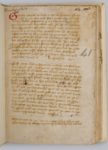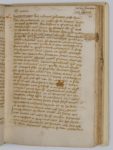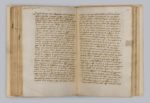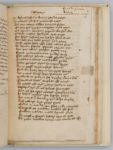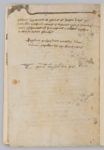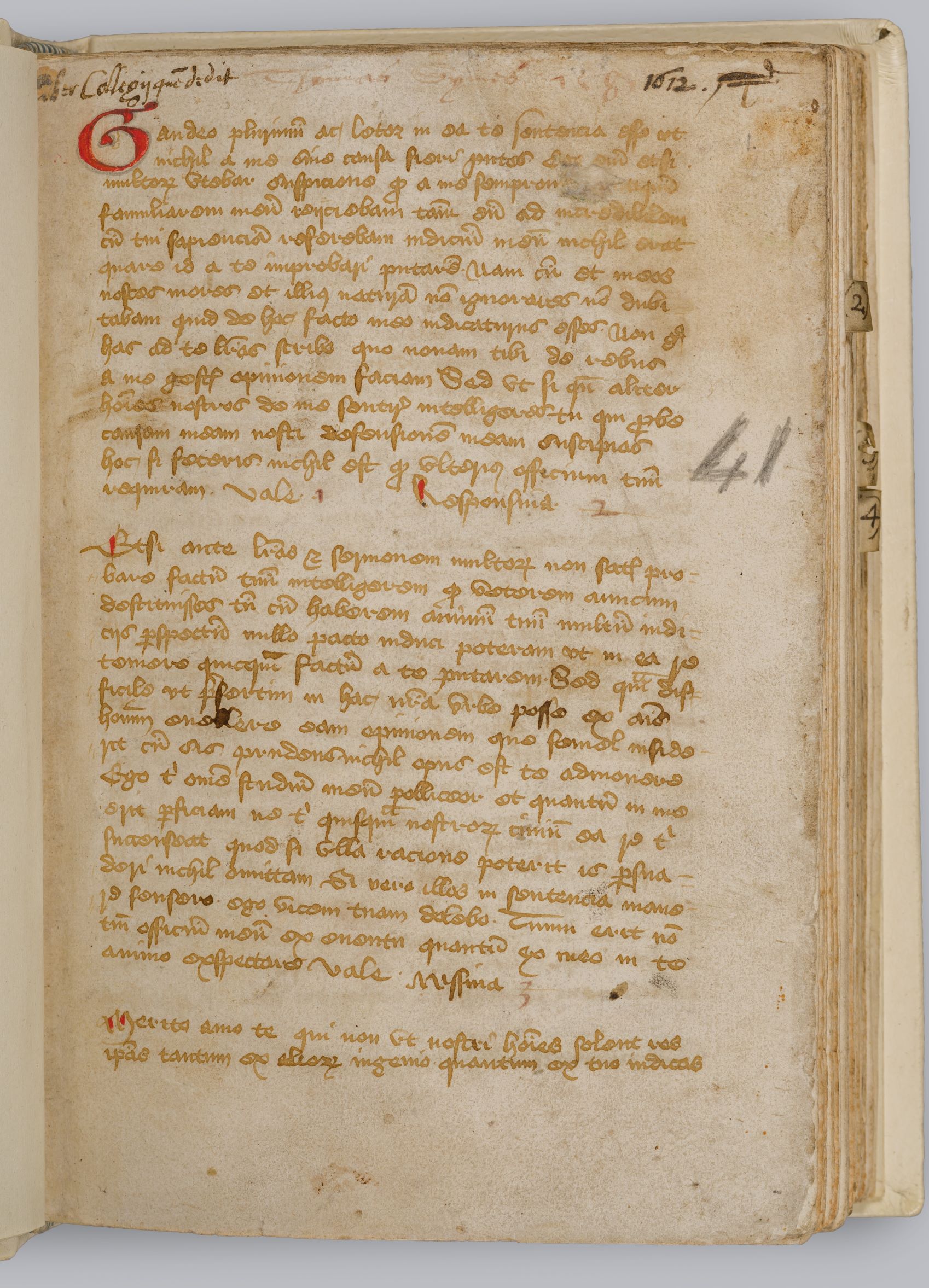
Collection of letters by Renaissance humanists and medieval theological texts, mid-15th century [MS41]
England
Manuscript on paper, ff. iv+216+iii. Bound in white alum-tawed pigskin over pasteboard by Roger Powell, 1959 (20.8 x 15 cm)
This manuscript consists mainly of letters by early Italian humanists, interspersed with two medieval theological texts. They are all copied in the same English hand and are significant evidence of an interest in Renaissance writings in 15th-century England, but it is not clear why these particular texts have been brought together. The manuscript is divided into five sections by numbered tabs, which were added later and by the same person who added tabs to a medical manuscript in the Fellows’ Library (MS26).
The manuscript begins (fols 1r–64v) with the ‘Book of Letters’ of Gasparino de Bergamo (c. 1360–c. 1431), an early Italian humanist and teacher. The letters were intended as a guide to writing, showing the reader how to compose prose and write elegantly. Gasparino wrote the archetype of his ‘Letters’ in 1407, while a professor of Rhetoric in Padua. The second part of the manuscript (fols 65–135v) begins with a letter sent by Coluccio Salutati to Pope Innocent VII in 1405, congratulating him on the appointment of another Italian humanist, Leonardo Bruni (c. 1369–1444), as the papal secretary. This is followed by seventy-six letters by Bruni.
The third section (fols 166r–52r) contains the Gospel of Nicodemus, a text written around the 4th century AD, but which was commonly copied in the Middle Ages. This version is in Latin, and the Fellows’ Library also has an English version of the text (MS33). The fourth section (fols 152v–162v) contains texts by Petrarch (1304–74), another early Italian humanist. The manuscript ends with a medieval text by the French theologian Alain de Lille (c. 1128–1202) called De Planctu nature (fols 176–216v). It is a satire on humanity’s vices, with particular focus on sexual perversion.
Literature: Edward Bernard, Catalogi librorum manuscriptorum Angliae et Hiberniae in unum collecti, Vol. 2 (Oxford, 1697), p. 31, nos 1359, 1362, 1363, and 1368; Charles H. Talbot, ‘A List of Cistercian Manuscripts in Great Britain,’ Traditio, vol. 8 (1952), pp. 402–18, 404; Neil R. Ker and Alan J. Piper, Medieval Manuscripts in British Libraries, Volume IV: Paisley–York (Oxford, 1969), pp. 628–30; Nicholas Mann, ‘Petrarch manuscripts in the British Isles’, Italia medioevale e umanistica, vol. 18 (1975), pp. 139–527, 487–89; Paul Yeats-Edwards, Winchester College (Warden and Fellows’ Library) Medieval Manuscript Collection: Brief History and Catalogue (London, 1978), p. 10; Paul O. Kristeller, Iter Italicum. Accedunt Alia Itinera. A Finding List of Uncatalogued or Incompletely Catalogued Humanistic Manuscripts of the Renaissance in Italian and Other Libraries, Vol. VI (Alia Itinera II): Great Britain to Spain (London, 1989), p. 275; David Rundle, ‘Humanism before the Tudors: On Nobility and the Reception of the studia humanitatis in Fifteenth-Century England,’ in Jonathan Woolfson (ed.), Reassessing Tudor Humanism (London, 2002), pp. 22–42, 37, n.14.
Provenance: Purchased by Thomas Symes, an alumnus of Winchester College, 1585; given to the College by Symes, 1612.
Location: Fellows’ Library
